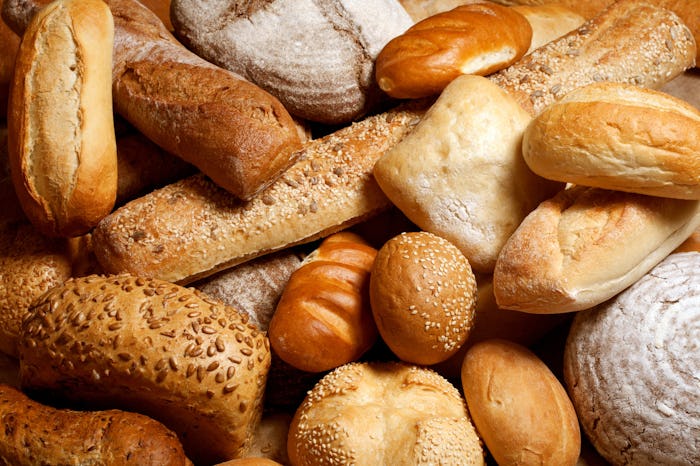Life

6 Things That Happen After You Eat Carbs
There are as many diets as there are people try in an effort to drop weight or eat healthier. Depending on the current fad, you may be advised to avoid all fats, avoid all carbs, or just survive on lemon water and celery sticks. For me, carbs are the hardest things to give up. Pastas and breads are my lifeblood, and a meal without a carb leaves me unsatisfied. But, carbs don't always make your body feel great (even though they taste so good in your mouth.) In fact, there are some things you never realize happen to your body after you eat carbs.
But, what are carbs anyway? According to the website Live Science, carbohydrates are the sugars, starches, and fibers that are found in grains, fruits, veggies, and dairy foods. Carbs are one of the three macronutrients, along with proteins and fats, that provide your body with energy. They tend to get a bad rap, especially since low-carb diets often result in visible weight loss. The other problem with carbs, as Steady Health noted, is that it's easy to overindulge on starchy carbs such as bread, rice, potatoes, and pasta. People are way less likely to binge eat salads than they are French fries. But, it comes at a price.
Here are some things you never realize are happening to your body after you eat carbs.
1You Get Sluggish
According to SF Gate, as carbs digest, they raise your blood sugar levels. Your body responds by pumping out a large dose of the hormone insulin to drop your blood sugar quickly. This crash can leave you feeling tired and sluggish.
2You Eat More
The same SF Gate article noted that the carb crash leaves you feeling hungry again. Your body craves more carbohydrates to replenish your energy, so you eat more, which can begin a cycle of overeating.
3Your Brain Feels Foggy
According to health information researcher Deane Alban with Brain Be Fit, your brain uses glucose as its main source of fuel, so the sharp rise and fall of your blood sugar puts your brain on a roller coaster ride with too much then too little glucose. This can leave your head feeling foggy, give you mood swings, make you irritable, it can also lead to mental confusion as well as impaired judgment.
4You Crave Sugar
A long-term diet high in refined carbohydrates can cause insulin resistance, according to OB-GYN Dr. Marcelle Pick with Women To Women. This means that glucose isn't able to enter your cells and ends up staying in your blood. This results in sugar cravings because even though you may be eating enough, your cells aren’t able to access the food.
5Your Cholesterol Gets Higher
If your diet contains more calories than you burn daily, SF Gate warned that dietary carbohydrates can raise your tissue and blood cholesterol levels. This is because as glucose and fructose metabolizes in your tissues, a molecule called acetyl coenzyme A is produced. Acetyl coenzyme A produces energy, but it can also produce lipids such as cholesterol and triglycerides.
6You Get Headaches
According to dentist Dr. Martha E. Rich, the glucose roller coaster can eventually cause hypoglycemia, a condition in which the blood cells don’t have enough glucose to function properly. If your blood sugar drops too low, the arteries in your brain constrict and cramp up in order to force more blood flow. This will trigger a headache.